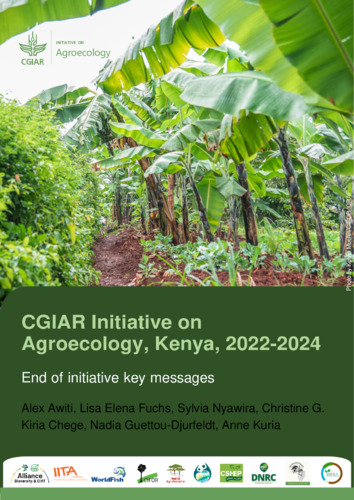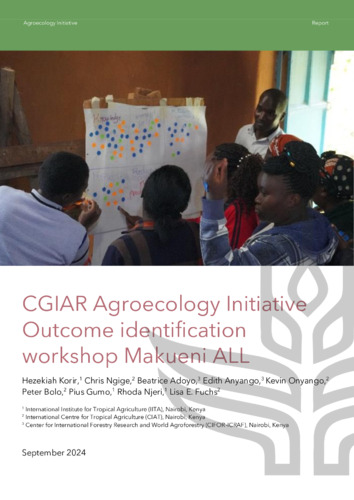A redesign of food systems is urgently required to achieve ecological, economic and social sustainability. Agroecology offers a transformative pathway integrating sustainable and resilient agricultural practices with enhanced agency for farmers and food system actors, particularly women and youth. While agroecological solutions exist at the farm level, scaling them to broader food, land and water (FLW) systems remains challenging due to insufficient evidence, misaligned policies, inadequate capacities, and limited financial mechanisms. The objective of the CGIAR Initiative on Agroecology (AE-I) was to address these barriers by generating evidence on the transformative potential of agroecology and identifying institutional innovations. By testing approaches in so-called agroecological living landscapes (ALLs) in Burkina Faso, India, Kenya, Lao PDR, Peru, Senegal, Tunisia and Zimbabwe, the AE-I aimed to identify, test, and demonstrate replicable transition models for FLW systems in low and middle-income countries, driving large-scale transformation across the Global South. In Kenya, the AE-I was implemented in collaboration with numerous stakeholders in two ALLs in Kiambu and Makueni Counties, including Community Sustainable Agriculture and Healthy Environment Program (CSHEP), Drylands Natural Resources Centre (DNRC), Participatory Ecological Land Use Management Association Kenya (PELUM-Kenya) and Intersectoral Forum on Agrobiodiversity and Agroecology (ISFAA).
Año de publicación
2024
Autores
Awiti, A.; Fuchs, L.E.; Nyawira, S.; Chege, C.; Guettou Djurfeldt, N.; Kuria, A.
Idioma
English
Palabras clave
agriculture, transformation, consumer behaviour, food systems, agroecology, value chains, governance, gender equality, experimentation, participatory approaches, assessment, private sector, inclusion, policy innovation
Geográfico
Kenya


















